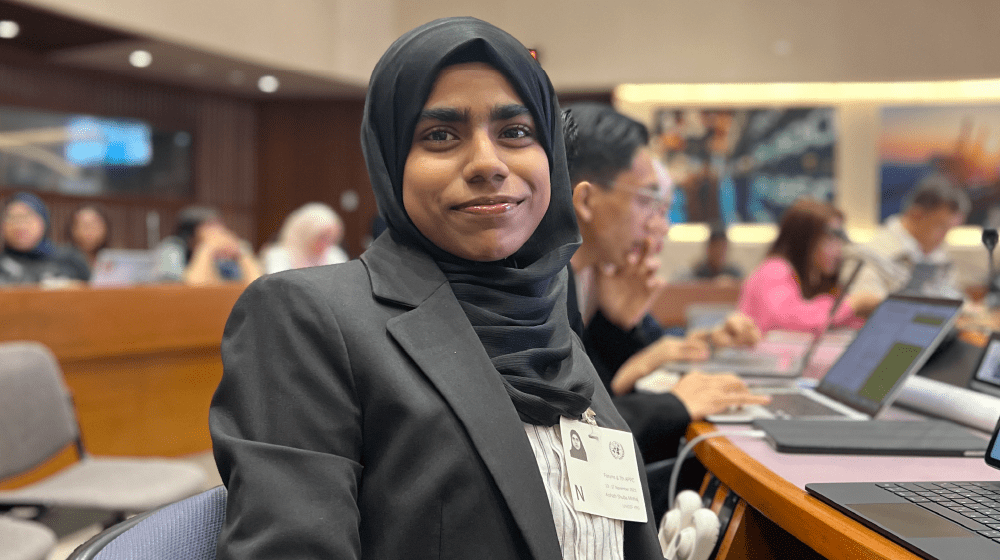During the first week of November, I had the honor of being selected to participate in the Seventh Asian and Pacific Population Conference (APPC) held at Bangkok, Thailand. Before diving into the actual conference, I find it important to highlight what the conference is about; population and development. Population, of course, takes a center stage in all the discussions and main themes around the conference. The conference looks at the past 10 years of progress following the 6th APPC and draws insight from the International Conference on Population and Development (ICPD) agenda, as well as the Cairo Ministerial Declaration signed in 1994. The conference I attended also fell within the 75-year anniversary of the Universal Declaration of Human Rights, the halfway mark for 2040 and the 30th review of the ICPD agenda.
The gathering itself was on an international scale with country delegates participating from all over the Asia Pacific. If the APPC is the crown jewel, then the Civil Society Organizations (CSO) and Youth Forum leading up to that are what paved the way for not just first timer participants like myself, but also others who are looking for the right platform and voice to express their concerns directly to their country representatives.
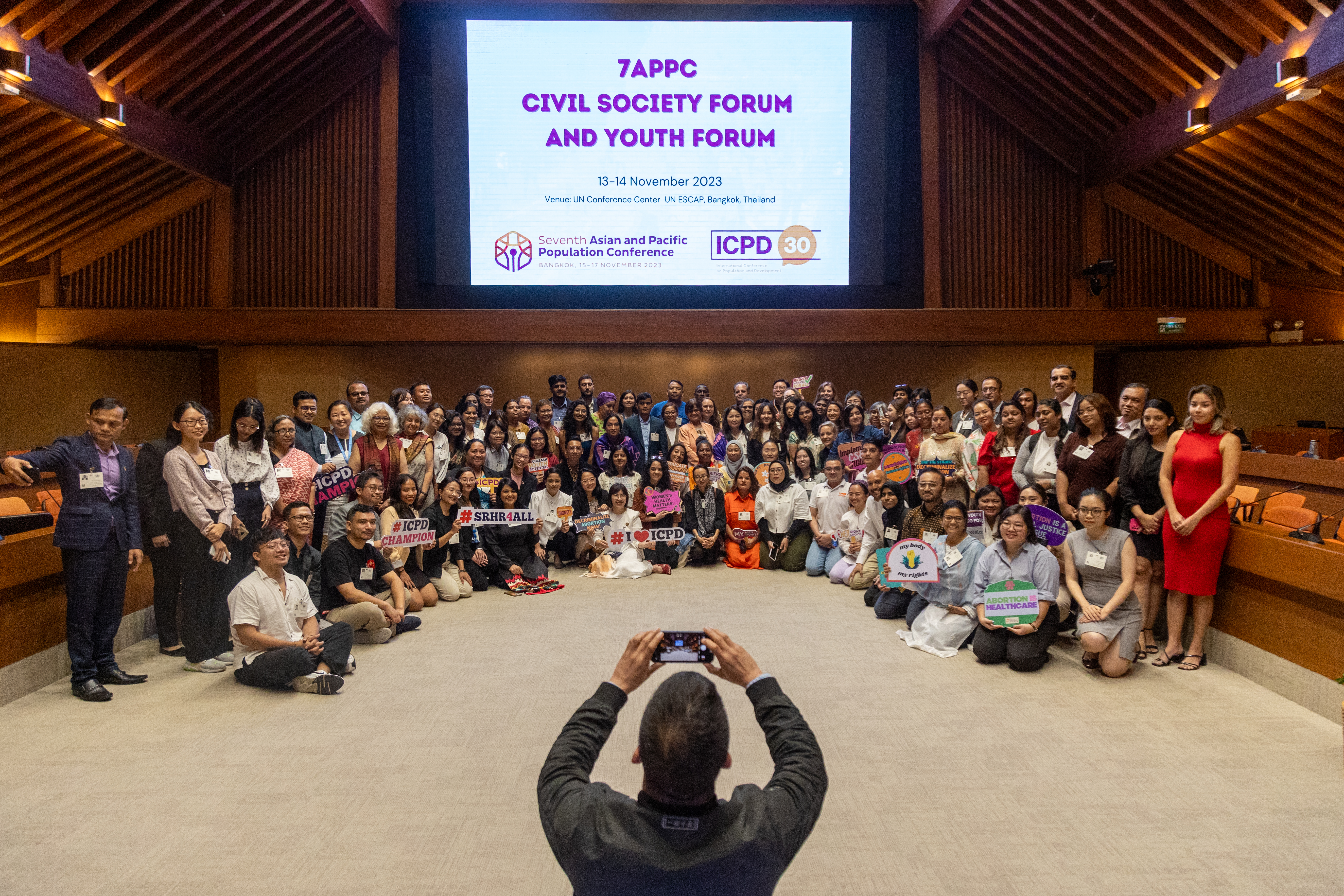
© Jeff via Shuba Minhaj
I look at the CSO and Youth Forum as a gathering of heroes. The phrase, ‘not all heroes wear capes’ really resonated here because the people I met were from all walks of life, across different regions, experiencing different aspects of what it means to be a part of the Asia Pacific. But the one thing uniting all of us together was a shared aim; to see a better, brighter future for all the people living in the Asia Pacific.
You could really feel it in the air, a lot of us Youth Forum participants were newbies on the international stage. We were similar to tiny, floofy baby birds, peaking our heads through our nests, experiencing the new world of vastly varying perspectives. So the imposter syndrome was really taking the wheel. Nonetheless, the vibes of mentorship, allies and safety was a permanent echo in the room for me; I sat with my fellow delegates from Malaysia, Mongolia, Indonesia and Philippines (to mention a few) and we realized that although our problems might take on different faces, it stemmed from the same roots. Climate change for Maldives looked like the rapid decline of reefs and the changes in tuna migration patterns. For Pakistan, it was floods, resulting in the loss of life in millions. In the Philippines, it was a typhoon that devastated the country. In Mongolia, they were in a constant fight for decentralization (similar to the Maldives, only they are landlocked) where the population kept moving into the capital city and a vast majority were leaving the country, never to return. There was a collective agreement among all of us, on the importance of the need, not want, for the future generations to not just survive, but thrive. This meant looking into topics that are kept under wraps, such as Sex Education, Family Planning, HIV/AIDs and other topics that our societies do not want to talk about.
Through these conversations, I realized that being a Maldivian, in that space, I came from a place of privilege. My fellow brothers and sisters are fighting for access to health care, education, safe water among others; things my country has managed to achieve to a degree that they only dream of. It was an eye opener, because listening to people on the news or social media talking about their lived experiences are very different from physical face-to-face conversations. The struggles resonate because a personal connection (in my case, friendship) was established in a physical setting. These conversations and connections are personally very important to me, because a lot of the time, things that we here in Maldives are struggling to do have been successfully done by my fellow delegates from other countries.
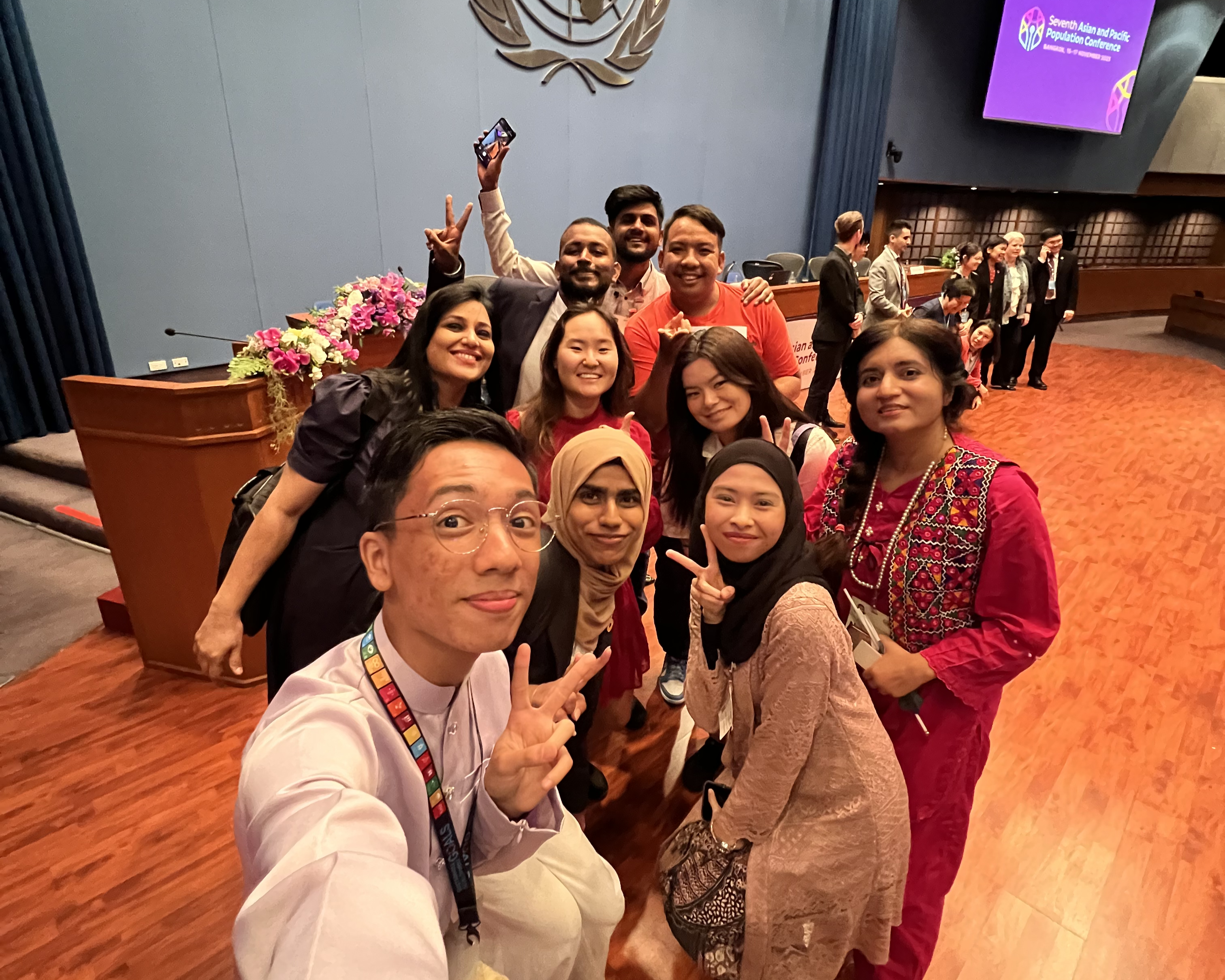
© Shuba Minhaj
Speaking of privilege, I also found it important to tackle a few of the things that resonated with me which the National delegates from Maldives highlighted. Though we have come a long way in Maldives, there are things that we also need to build on. The current healthcare model, for example, is failing. We need to move from a curative one to a more preventative one. We also need to have better involvement of local communities when making policies regarding tourism because we are currently operating on an outdated model which still lets the big players from the tourism industry dictate the use of our resources.
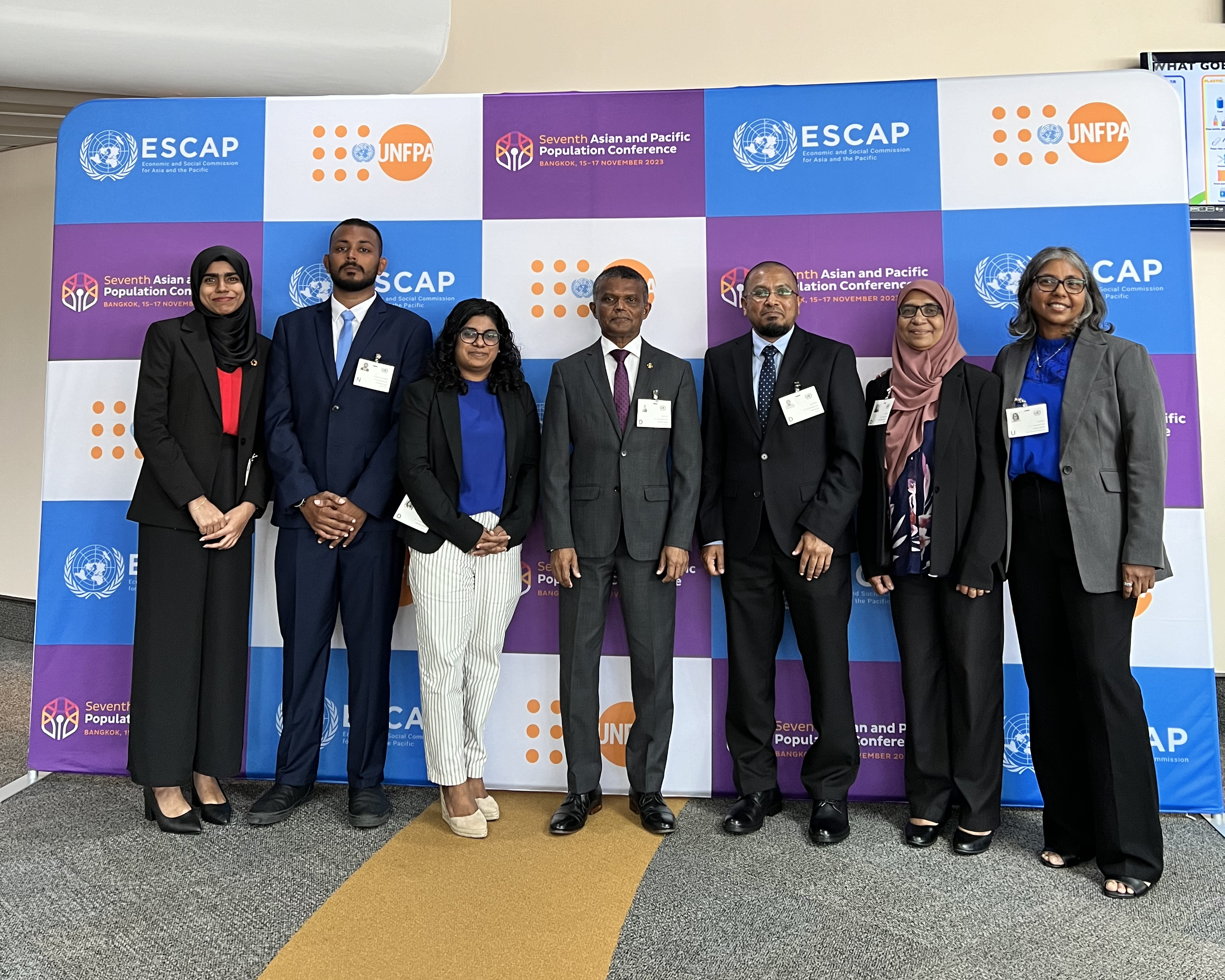
© Shuba Minhaj
Circling back to involvement, it was through this conference that I also recognised the impact of it when the involvement is not tokenistic. We, from Asia are many, which means a lot of the time we also dominate the spaces we occupy and I had to learn that being a dominant force, also means ensuring that the minorities within the same space are given their voices and their representation. Progress, true progress, is impossible to achieve without proper partnerships. This was seen through collaboration between Youth and CSO Forum participants, when we drew up an Call-to-Action Plan which was presented at the 7th APPC. The Call-to-Action Plan was a document which looked at recommendations from CSOs as well as youth on the main thematic areas of the conference. This is why I am an advocate for the involvement of youth when it comes to policies, development, campaigns, summits and conferences that have an effect on how we will live in this shared world. This involvement should not be for the sake of saying that there were youth in the consultation, that there were persons with disabilities invited to the consultation; it should be about ensuring that there is a voice given to them, where they can share what they know. Because let’s face it, youth are the experts on youth and this applies across all the different groups.
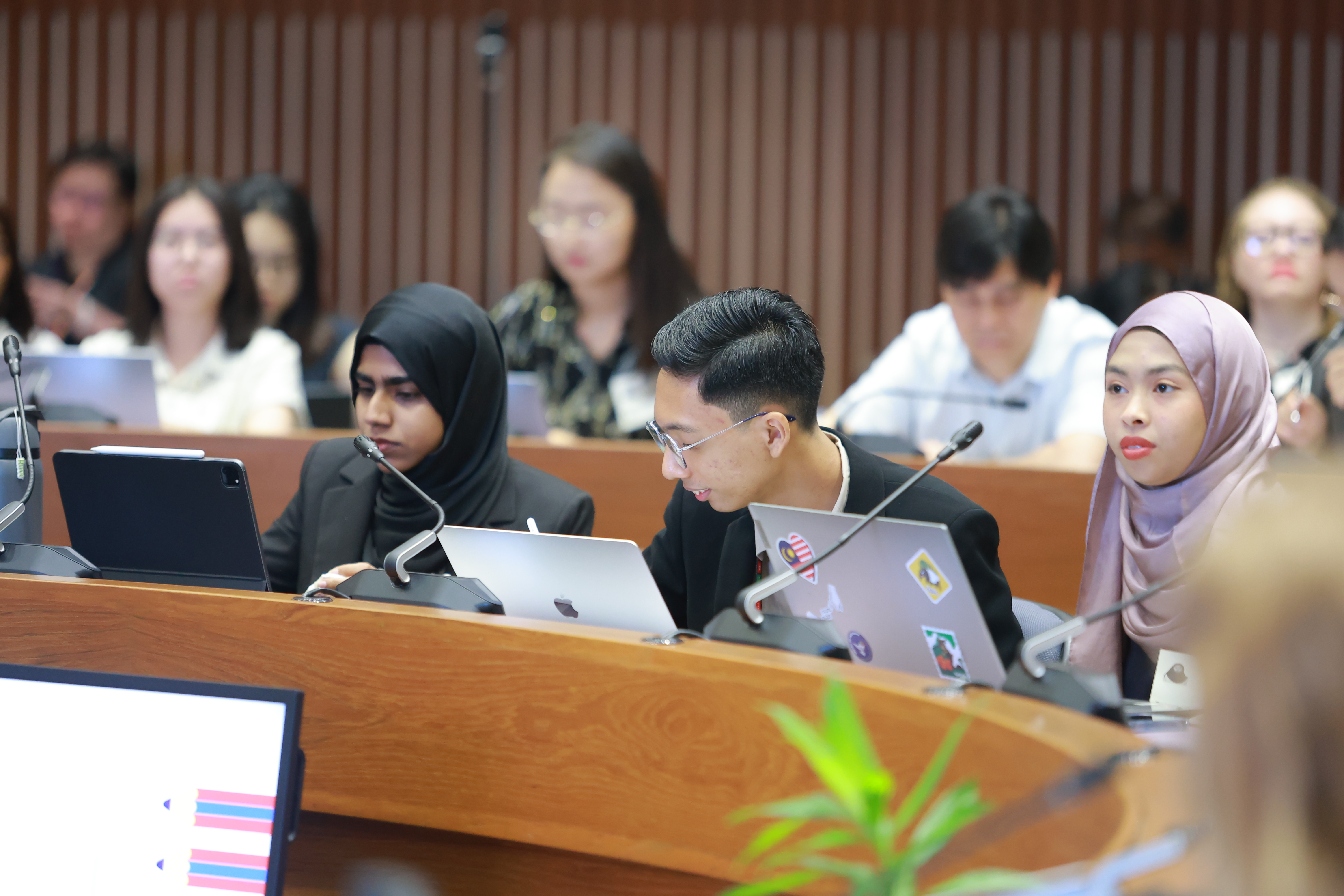
© Sakon via Shuba Minhaj
A common theme across all the discussions in both the forums as well as the APPC, was the need for future proof solutions, be it policies, infrastructure or curriculums. The world is a changing place and it is important that we make our declarations, our promises and our plans in a way that does not limit the potential of the future to come. This also means, as participants for the 7th APPC we also have a duty to ensure accountability from our respective governments to make sure that these commitments are upheld until the next APPC in 10 years.
Something else I also came to realize was that, we, the Asia Pacific are a force. We have 60% of the world’s population living in this region, which means if we collectively ban together to call for one shared aim, it is possible. It also means that we have a voice that the world’s powers should and are listening to. We just need to own that power. The first step to this is perhaps getting important stakeholders involved in all aspects that have trickling effects that concern them, from the very top to the very bottom.
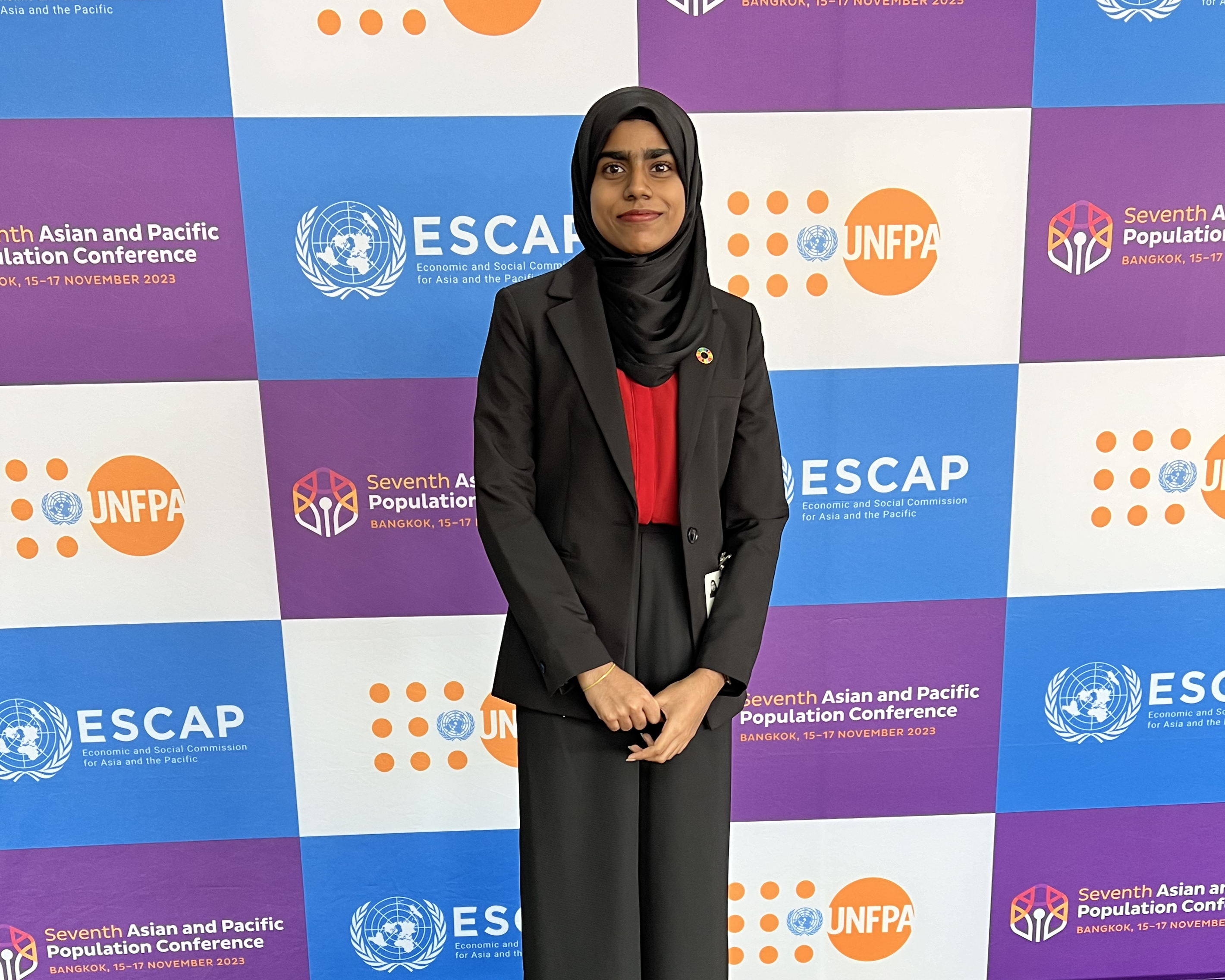
© Shuba Minhaj
I walked into that pre-conference to unconsciously shed a layer of myself and I emerged a changed person. When the APPC7 ended, I was sad that it did, but happy that I got to experience it. They say hope is a fickle thing, but I plan on grabbing onto hope with both hands; there is a lot of it in me. The friends I made, I hope to retain for a lifetime. The connections I made, I hope to build and expand; together I hope that we end up making the world a better place for the children of today and the ones that are yet to be born. It is my hope that I get to amplify the voices that echo mine, but also give space to those who have important messages but have a softer voice. Lastly, I hope that the world the younger generations grow up in is one we do not have to worry about their survival in. Until this becomes true, may we remain champions of the future, may we always demand accountability and may we always hold space for those who need to speak up.
Written by: Shuba Minhaj

